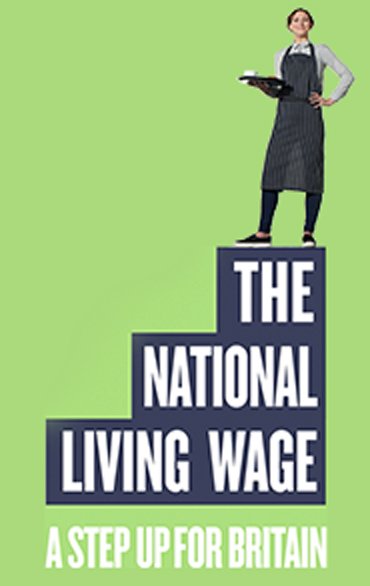Reminder: New 'Living Wage' minimum wage becomes law
The new minimum wage, now called the Living Wage, comes into force on 1 April. The Federation of Small Businesses (FSB) is calling on small firms to make sure they act on this new legal requirement or they will face heavy penalties.
The Living Wage is the new compulsory minimum wage and it is set at £7.20 per hour for the over 25s. The Conservatives, so opposed to the introduction of a minimum wage when they were in opposition saying it would reduce employment. With employment having increased significantly in the years since then, now they are governing they have changed their mind and have set a target for the minimum wage to rise to the equivalent of 60% of average earnings by 2020. Based on the latest projections, this will mean the 'Living Wage' would be £9.15 per hour in 2020.
The aim is to replace the working tax credit, which is effectivectively a way of subsidising industry by reducing the cost of the labour it employs, with a wage level that makes it unnecessary.
The minimum wage is unlikely to have much impact on the strone industry as most companies already pay most of their employees above the minimum legal requirement.
Some retailers are taking the opportunity of reducing pay and blaming the Government by saying this is what it has set the pay level at.
In October last year, FSB surveyed its members to find out how small businesses expected to adapt to the new minimum wage. Its research revealed that 62% of small employers did not expect the new minimum wage to impact negatively on their businesses, although just 6% thought the policy would have a positive impact on their businesses.
The Government's argument is that it is good for the economy in general and avoids the risk of skewing it towards businesses that would not be viable without a subsidised labour force. The subsidising effect of in-work benefits, which the Conservatives are cutting, might be one reason the level of productivity in the UK is so poor compared with most developed economies.
Of course, some companies have dire warnings of price increases and/or job cuts, but in reality this has not been the outcome of the minimum wage, at least to its current levels.
Mike Cherry, FSB National Chairman, says: “While it is easy to say everyone deserves a pay rise, the only way to deliver and sustain higher wages in the long run is to improve productivity, boost skills and drive business growth. Without the right type of productivity growth, there is a real risk that in many sectors higher enforced statutory wages will lead to fewer jobs being created, fewer hours for existing staff and, unfortunately in some cases, job losses."

